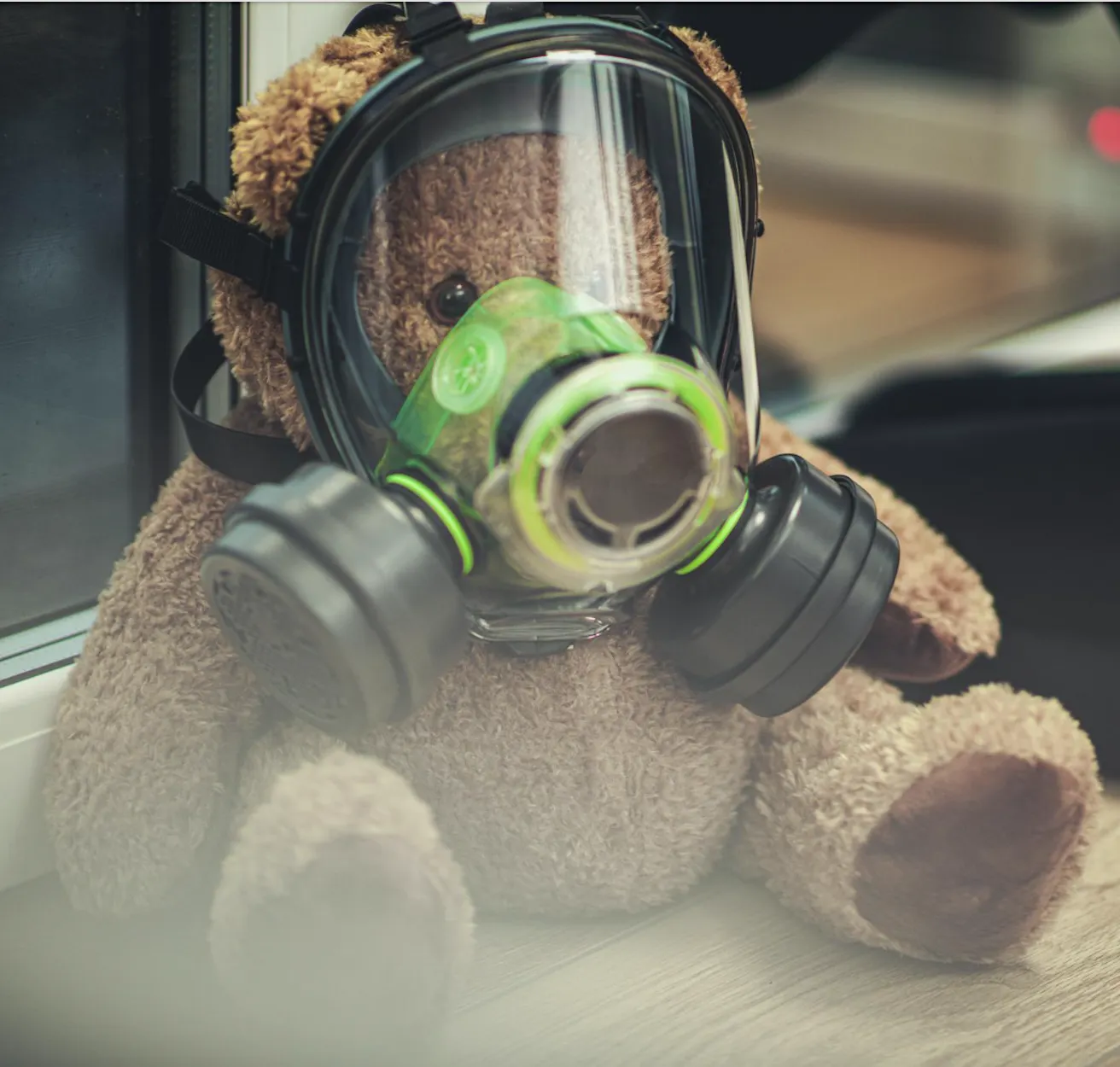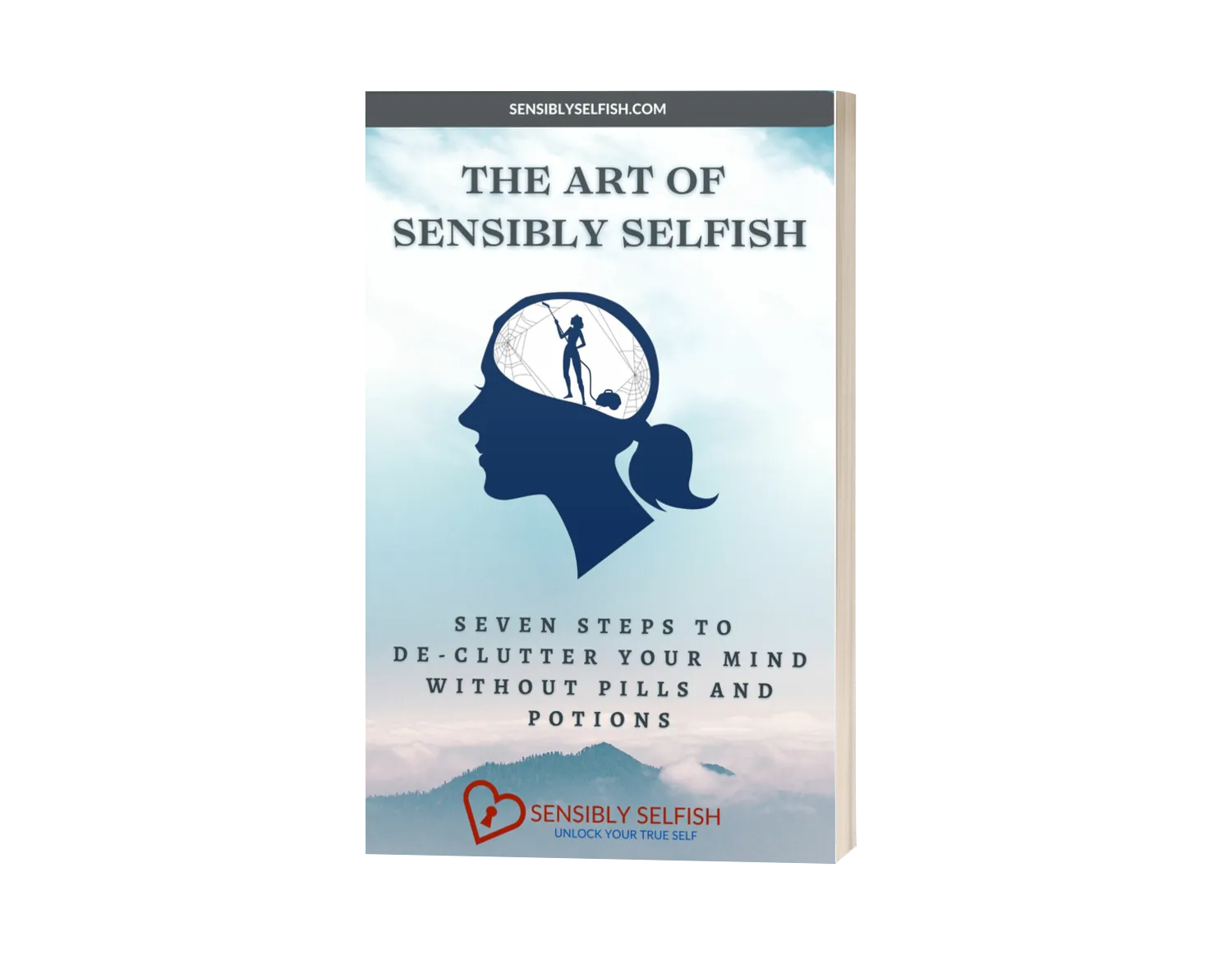Free Methods to Overcome Sleep Challenges
During Peri-Menopause and Menopause
[Toc]
Attention, women over 45 - Say goodbye to sleepless nights and hello to rejuvenating rest as we unveil the ultimate FREE guide to conquering your sleep disruptions!
As women transition through peri-menopause and menopause, their bodies undergo significant hormonal changes that can have a profound impact on various aspects of their lives. One area that is often disrupted during this time is sleep. Many women find themselves facing specific sleep-related issues that can interfere with their overall well-being and quality of life.
There is nothing worse when sleep-deprived to have to spend yet more time and money attempting to get to sleep. The good news is that this article covers some of the simple tips and tricks you can put into your Sensibly Selfish toolbox and most of them are FREE.
While this article aims to provide valuable insights and solutions for sleep-related challenges during peri-menopause and menopause, it's essential to acknowledge certain sleep issues that fall beyond its scope. The following conditions, although significant, require specialized attention and may require consultation with healthcare professionals: chronic insomnia, serious illness, substance dependence, and depression-related sleep issues.

Common Sleep Issues at Midlife
Increased Difficulty Falling Asleep
One of the primary sleep-related concerns during peri-menopause and menopause is the increased difficulty in falling asleep. Hormonal fluctuations can lead to heightened anxiety, restlessness, and racing thoughts that make it challenging to achieve the deep relaxation necessary for sleep initiation. The hormonal changes also affect the body's internal clock, leading to a disruption in the natural sleep-wake cycle.
Frequent Awakenings During the Night
Another common sleep issue experienced by women in this phase is frequent awakenings during the night. Hormonal imbalances can cause temperature fluctuations, night sweats, and hot flashes, which can disrupt sleep and wake women up multiple times. These interruptions can prevent the attainment of restorative, uninterrupted sleep, leaving women feeling fatigued and unrefreshed in the morning.
Insomnia and Poor Sleep Quality
Insomnia, characterized by difficulty staying asleep or struggling to return to sleep after waking up, can be a significant challenge for women in peri-menopause and menopause. Hormonal changes, combined with psychological and emotional factors like stress, anxiety, and mood disturbances, can contribute to insomnia. The result is fragmented sleep and reduced sleep quality, leading to daytime sleepiness, irritability, and a decreased ability to function optimally.
Daytime Fatigue and Lack of Energy
The cumulative impact of disrupted sleep patterns and poor sleep quality during peri-menopause and menopause often results in daytime fatigue and a lack of energy. Sleep deprivation and irregular sleep patterns can leave women feeling drained, mentally foggy, and physically exhausted. This fatigue can have a significant impact on daily activities, productivity, mood, and overall quality of life.

Pause - What pause?
Peri-menopause and menopause bring about a multitude of changes in a woman's body, and sleep disruptions are among the most prevalent and frustrating. Fluctuating hormone levels, particularly a decline in estrogen and progesterone, can wreak havoc on the sleep-wake cycle.
Hot flashes and night sweats are notorious companions during peri-menopause and menopause, and they can significantly disrupt sleep patterns. These sudden waves of intense heat, often accompanied by sweating, can jolt women awake multiple times.
In addition to hormonal fluctuations and hot flashes, peri-menopause and menopause can bring about psychological and emotional changes that impact sleep. Racing thoughts, worries, and an overactive mind can make it challenging to quiet the brain and relax into a restful sleep. During peri-menopause and menopause, there just does not seem to be any pause!
What are Healthy Sleep Patterns Anyway?
Let’s step back for a moment and consider how societal expectations have evolved over time. Our understanding of what constitutes 'normal' sleep has been shaped by various factors, including cultural beliefs, historical practices, and the demands of modern life. Before the industrial revolution, it was not uncommon for individuals to experience segmented sleep, characterized by a period of wakefulness in the middle of the night. This period was often utilized for quiet reflection, prayer, or intimate interactions. Historical accounts indicate that people would engage in activities such as reading, writing, or even visiting neighbors during these hours of wakefulness.
However, with the advent of the industrial revolution and the introduction of factory work and standardized working hours, societal expectations of sleep underwent a significant transformation. The emergence of an industrialized society emphasized the importance of productivity, efficiency, and adhering to a structured schedule. As a result, the ideal of consolidated, uninterrupted sleep became more prevalent, with the notion that individuals should sleep continuously for a designated period during the night.
These changing societal expectations, influenced by the demands of industrialization and the concept of the "nine-to-five" workday, have had a profound impact on our perception and prioritization of sleep. The pressure to conform to these expectations, combined with advancements in technology and the 24/7 accessibility of modern life, has blurred the boundaries between work and personal time. This has led to increased difficulty in achieving a healthy balance and dedicating sufficient time for restful sleep.
Understanding the historical context and societal shifts surrounding sleep expectations can provide valuable insights into our present-day challenges. Recognizing that segmented sleep was once considered normal can help alleviate the anxiety and frustration individuals may experience when waking up in the middle of the night. It allows us to question and challenge the rigid norms imposed by industrialization, and instead embrace a more flexible and individualized approach to sleep that respects our natural rhythms and unique needs.

Stress
Stress and sleep are intertwined, forming a never-ending spiral of impact on our well-being. It's no secret that when stress levels soar, sleep quality plummets, and when we lack sufficient sleep, stress levels soar even higher. Sadly, this vicious cycle has become all too common, with an estimated one in three adults in the US alone not getting enough sleep.
Stress, whether real or perceived, triggers our body's survival response. While acute stress is a natural part of life, it is the chronic stressors in our lifestyle or environment that pose a greater threat to our health. Among the detrimental consequences of chronic stress, the lack of quality sleep stands out as particularly damaging.
Beyond feeling tired and groggy, sleepless nights can wreak havoc on your overall well-being, affecting everything from your skin's youthful appearance to your longevity. Without adequate sleep, our bodies struggle to detoxify, leading to inflammation and a weakened immune system, leaving us susceptible to illnesses. Moreover, sleep deprivation has been linked to an increased risk of Alzheimer's, high blood pressure, obesity, heart disease, diabetes, and mental health issues.
In fact, the effects of sleep deprivation can manifest in various ways, and the signs should not be taken lightly. Brain fog, persistent fatigue, unpredictable mood swings, and memory loss can all emerge as early warning signals OF STRESS not menopause, which, if left unaddressed, may lead to severe injury or other complications.
It's clear that quality sleep is not just a luxury but a vital component of our overall health and well-being. In the following sections, we will explore the unique challenges faced by women over 45 during peri-menopause and menopause, and unveil effective solutions to help you regain restful slumber and take control of your sleep once again.
Addressing Sleep Challenges, Embracing Restful Nights
While sleep-related issues during peri-menopause and menopause can be challenging, it's important to remember that there are strategies and solutions to help alleviate these concerns. In the following sections, we will delve into various approaches and lifestyle modifications that can support better sleep during this transitional phase of a woman's life. By understanding the specific sleep challenges faced, women can proactively address them, regain control over their sleep, and embrace restful nights that contribute to their overall well-being.
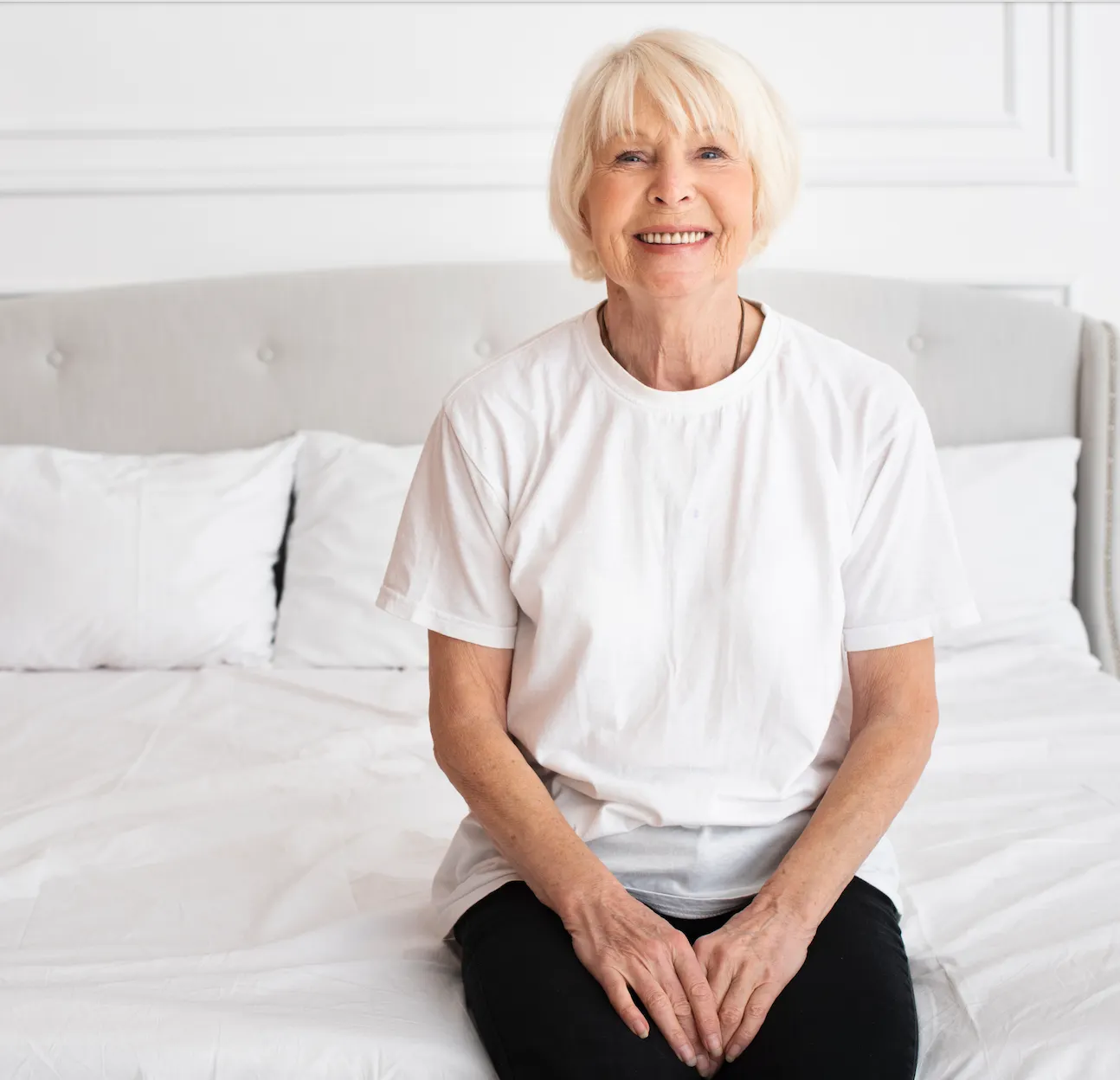
Sleep Habits
Getting a good night's sleep is essential for overall well-being, especially during peri-menopause and menopause. By adopting healthy sleep habits, women can improve their sleep quality and minimize the impact of hormonal changes on their rest. Here are three key habits to consider:
Establishing a consistent sleep schedule
Maintaining a regular sleep routine is crucial for training your body to recognize when it's time to sleep and wake up. Aim to wake up at the same time each day, even on weekends. This consistency helps regulate your body's internal clock, promoting more restful sleep. Consider setting a bedtime alarm as a reminder to start winding down and prepare for sleep.
Our bodies have a natural sleep-wake cycle, also known as the circadian rhythm, which is influenced by various internal and external factors, including exposure to light and darkness. When you consistently wake up at the same time each day, you expose yourself to natural daylight and signal to your body that it's time to be awake and active. This exposure to daylight helps regulate your circadian rhythm, promoting alertness and keeping your body in sync with the natural light-dark cycle.
In contrast, when you disrupt your wake-up time by sleeping in on weekends or having irregular sleep patterns, you can throw off your circadian rhythm. This can lead to a phenomenon commonly known as social jet lag, where you experience similar effects to those experienced when traveling across time zones. It can result in feelings of grogginess, fatigue, and difficulty falling asleep at the desired bedtime.
By maintaining a consistent wake-up time, you reinforce your body's internal clock, making it easier to fall asleep at the intended bedtime and promoting better sleep quality overall. Consistency in both bedtime and wake-up time helps regulate your sleep-wake cycle, enhancing your ability to fall asleep more quickly and experience more restorative sleep.
While occasional variations in sleep patterns may be unavoidable, especially during weekends or special occasions, striving for regularity in both bedtime and wake-up time most days of the week can have significant benefits for your sleep quality and overall well-being.

Your Sleep Haven - Creating a sleep-friendly environment
Your sleep environment plays a significant role in facilitating a restful night's sleep. Ensure your bedroom is cool, dark, and quiet. Use blackout curtains or an eye mask to block out any excess light, and consider using earplugs or a white noise machine to mask disruptive sounds. Invest in comfortable mattresses, pillows, and bedding that support your personal preferences and promote proper alignment.
Identify and eliminate factors that can disrupt your sleep. Here are a few things to avoid:
Electronic devices and screens
The blue light emitted by electronic devices, such as TVs smartphones, tablets, and laptops, can interfere with your body's production of melatonin, a hormone that regulates sleep. Avoid using electronic devices close to bedtime, as they can delay the onset of sleep and affect sleep quality. If possible, make your bedroom a screen-free zone to create a conducive sleep environment.
Excessive noise and light
Noise disturbances can disrupt your sleep and prevent you from falling asleep or staying asleep. Try to minimize external noises as much as possible by using earplugs, a white noise machine, or even a fan to create a soothing ambient sound. If noise from outside sources is unavoidable, consider using soundproof curtains or adding insulation to your bedroom walls to reduce the impact of external sounds.
Additionally, minimize sources of light in your bedroom, as even small amounts of light can disrupt sleep. Consider using blackout curtains, eye masks, or dimming lights to create a dark and peaceful sleep environment.
Uncomfortable bedding and temperature extremes
Your sleep environment should be comfortable and conducive to rest. Avoid using uncomfortable or worn-out mattresses and pillows that don't provide proper spine support. Additionally, extreme temperatures, either too hot or too cold, can disrupt sleep. Ensure your bedroom is kept at a comfortable temperature and consider using natural breathable, moisture-wicking bedding materials to promote a comfortable sleep environment.
Clutter - Creating a Serene Sleep Sanctuary
A cluttered bedroom can create a sense of unease and make it difficult to relax. Clutter refers to any unnecessary or disorganized items that can accumulate and disrupt the visual and mental harmony of the space. Clutter can also serve as a constant reminder of unfinished tasks or disorganized aspects of our lives, further exacerbating stress and restlessness.
Clutter can obstruct our ability to engage in essential bedtime rituals. When our surroundings are cluttered, our minds can feel cluttered too, making it difficult to unwind and transition into a restful state. Keep your bedroom tidy and organized, removing any unnecessary items that can contribute to a chaotic atmosphere. Consider getting help to de-clutter if you feel overwhelmed.
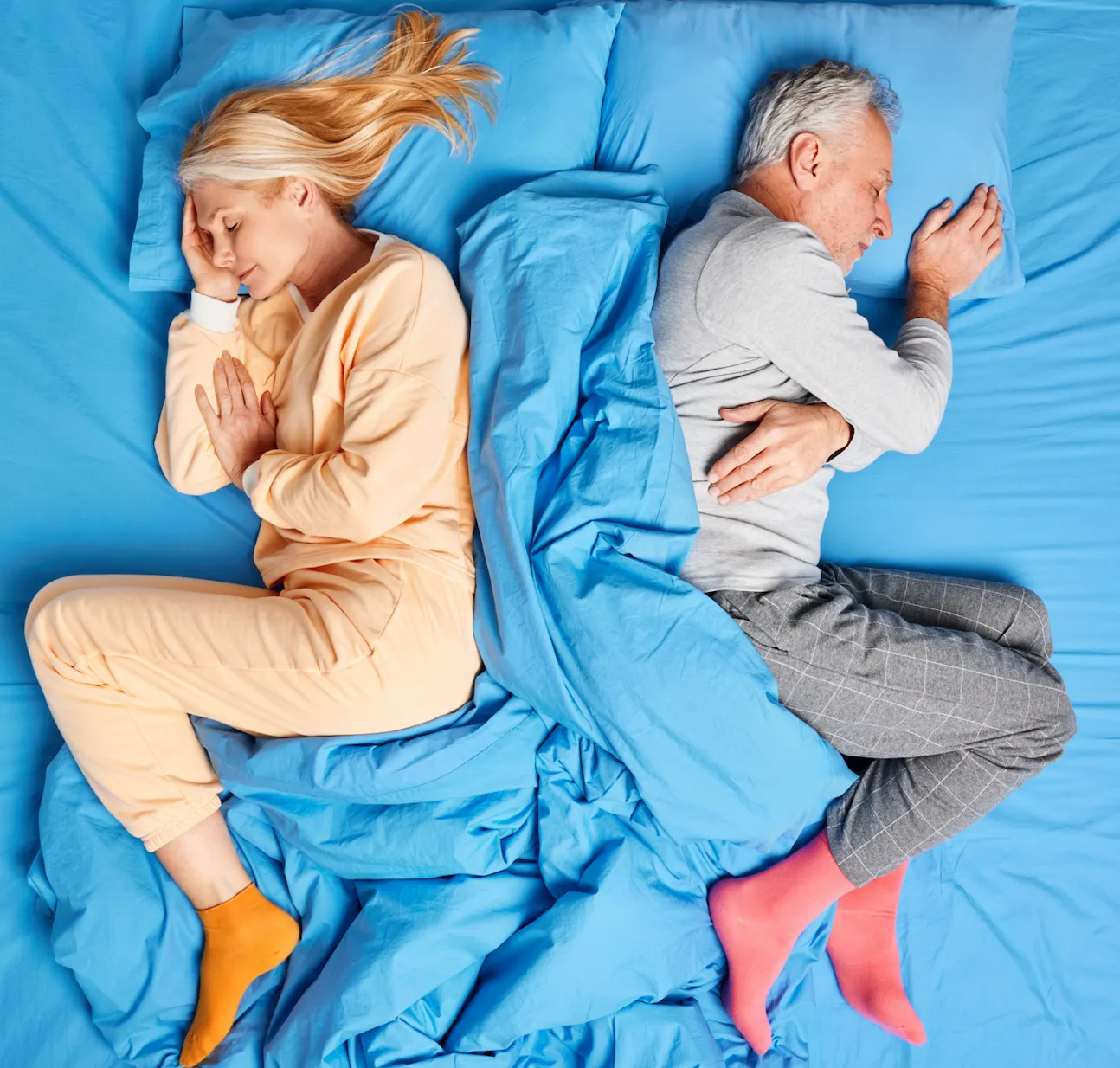
Avoid Your Partner!
The presence and sleep habits of your partner can significantly influence the quality of your sleep and overall sleep experience. Here are a few key factors to consider:
- Sleep Schedule Synchronization
One aspect that can affect your sleep haven is the synchronization of sleep schedules with your partner. If you and your partner have different sleep-wake patterns, it may lead to disturbances during the night. For example, if your partner stays up late or wakes up significantly earlier than you, their activities may disrupt your sleep. Communicating and finding a compromise that respects both of your sleep needs can help maintain a harmonious sleep environment.
- Bedtime Habits and Sleep Hygiene
Your partner's bedtime habits and sleep hygiene practices can impact your sleep haven. Factors such as excessive noise, bright screens, or irregular sleep routines can disrupt your sleep. Discussing and aligning on healthy sleep practices, such as avoiding electronic devices before bed, minimizing noise levels, and creating a calming bedtime routine together, can contribute to a more conducive sleep environment for both of you.
- Sleep Comfort and Bedding Preferences
The comfort of your sleep haven also depends on finding a balance between your preferences and those of your partner. Differences in mattress firmness, pillow choices, or preferred sleep positions can affect the quality of sleep for one or both individuals. It may be helpful to invest in a mattress and bedding that accommodate the needs of both partners, or even consider separate sleep zones within the same bedroom to cater to individual comfort requirements.
- Bed Sharing and Sleep Disturbances
For couples who share a bed, it's important to address any sleep disturbances that may arise from movements, snoring, or other factors. Sleep disruptions caused by a restless partner can lead to sleep deprivation and reduced sleep quality. If one partner's sleep disturbances significantly impact the other's sleep, it may be worth exploring potential solutions, such as using earplugs, white noise machines, or even considering alternative sleeping arrangements if necessary.
- Emotional and Relationship Dynamics
The emotional dynamics within a relationship can also influence the sleep haven. Relationship conflicts, unresolved issues, or stress can spill over into the sleep environment and impact sleep quality. Nurturing open communication, practicing empathy, and addressing any underlying relationship concerns can foster a supportive and peaceful sleep haven.

The Link Between Sleep and Health
When it comes to achieving quality sleep, our overall health plays a crucial role. The lifestyle choices we make, including our diet, habits, and physical activity levels, can significantly impact our sleep quality. By adopting healthy habits and making conscious choices, we can create an environment that promotes restful sleep. Let's explore some key factors that contribute to a healthy lifestyle and their positive effects on sleep.
Review Your Substances
The foods and beverages we consume can either support or hinder our sleep quality. It's important to evaluate your diet and identify any substances that may disrupt your sleep. Here are a few recommendations to consider:
Certain foods and drinks, such as caffeine, alcohol, and heavy or spicy meals, can interfere with sleep. If you're struggling with sleep issues during peri-menopause and menopause, it's crucial to examine your caffeine and alcohol consumption. These substances can significantly impact your sleep quality and disrupt your sleep-wake cycle. Limit your intake of caffeine-containing beverages like coffee, tea, and soda, particularly in the late afternoon and evening.
Similarly, minimize alcohol consumption, as it can disrupt sleep patterns and lead to restless nights. Opt for lighter, well-balanced meals in the evening to avoid discomfort and indigestion that may affect sleep.
- Caffeine's stimulating effects: It's no surprise that caffeine, commonly found in coffee, tea, energy drinks, and some sodas, can interfere with your sleep. As a stimulant, caffeine blocks sleep-inducing chemicals in the brain and increases the production of adrenaline, which keeps you awake and alert. Even if you consume caffeine earlier in the day, its effects can linger for several hours, making it harder to fall asleep and achieve restful sleep. It's advisable to limit or avoid caffeine consumption, especially in the afternoon and evening, to promote better sleep.
- Alcohol's Impact on sleep architecture: While alcohol is often consumed in the evening as a means of relaxation, it can have detrimental effects on your sleep. Despite its initial sedative properties, alcohol is a depressant that disrupts the normal sleep cycle. It tends to shorten the sleep cycle and interferes with REM sleep, which is essential for deep, restorative sleep. This can lead to frequent nocturnal awakenings, leaving you feeling unrefreshed and fatigued upon waking. Cutting back on alcohol or avoiding it altogether, especially close to bedtime, can help improve the quality of your sleep.
- Smoking and Sleep Suck: Smoking has numerous detrimental effects on overall health, including sleep. The nicotine in cigarettes acts as a stimulant, increasing alertness and disrupting sleep patterns. Quitting smoking not only improves cardiovascular health and reduces the risk of various diseases, but it can also positively impact sleep. By eliminating nicotine from your system, you allow your body to naturally regulate sleep cycles, leading to more restorative sleep.
Everyone's sensitivity to caffeine and alcohol can vary, so it's important to pay attention to how these substances affect your own sleep. Making conscious choices to reduce or eliminate them can have a significant positive impact on your sleep quality and overall well-being.
Incorporate Sleep-Promoting Foods
Some foods contain nutrients that can promote better sleep. Consider including sleep-friendly options in your diet, such as complex carbohydrates (whole grains, legumes), lean proteins (poultry, fish, tofu), fruits, vegetables, and sources of magnesium (spinach, nuts, seeds).
Opt for caffeine-free herbal teas or decaffeinated beverages to satisfy your cravings. If you find it challenging to eliminate these substances completely, limit their consumption to earlier in the day, giving your body more time to metabolize and eliminate their effects before bedtime.
These nutrients can help regulate sleep-inducing hormones and support a more restful night's sleep.

Take Regular Exercise
Engaging in regular physical activity is not only vital for overall health but also has significant benefits for sleep. Incorporating exercise into your routine can positively influence sleep quality and duration.
Physical activity promotes the release of endorphins, which can help reduce stress and anxiety, allowing for better sleep. Exercise also supports the natural regulation of circadian rhythms, helping to synchronize your sleep-wake cycle.
Regular exercise can act as a natural stress reliever, helping to alleviate tension and promote relaxation. By reducing stress levels, exercise can contribute to improved sleep quality and reduced sleep disturbances.
Aim for moderate-intensity exercise during the day, preferably finishing your workout at least a few hours before bedtime. Exercising too close to bedtime may increase alertness and make it harder to fall asleep.
Striving for a Healthy Lifestyle, Restful Nights, and Vitality is all about prioritizing your health through a balanced diet, by reviewing your holistic self. Making gradual, sustainable changes, to your lifestyle, one after another, is the key to long-term success in optimizing both your health and sleep.

Your gut health
The connection between our gut health and sleep has gained significant attention in recent years. Emerging research suggests that maintaining a healthy gut can positively impact our sleep quality and overall sleep-wake cycle.
Gut microbiota and sleep regulation
The gut is home to trillions of microorganisms collectively known as the gut microbiota. These microorganisms play a vital role in various aspects of our health, including sleep regulation. Studies have shown that the composition and diversity of gut microbiota can influence our sleep patterns and the quality of our sleep. A healthy gut microbiota is associated with more stable sleep-wake cycles, while imbalances in gut bacteria have been linked to sleep disturbances and conditions such as insomnia.
Serotonin production
Serotonin, often referred to as the "feel-good" hormone, plays a crucial role in regulating sleep, mood, and overall well-being. Surprisingly, around 90% of serotonin is produced in the gut. An imbalance in gut microbiota can disrupt the production and availability of serotonin, potentially leading to mood disorders, anxiety, and sleep disturbances. Nurturing a healthy gut through a balanced diet and probiotic-rich foods can support serotonin production and contribute to better sleep quality.
Gut-brain axis communication
The gut and the brain communicate bidirectionally through a complex network called the gut-brain axis. This communication system allows for constant interaction between the gut microbiota, the nervous system, and the brain. Disruptions in this communication, such as inflammation or imbalances in gut bacteria, can have negative effects on sleep. Conversely, a healthy gut, with a diverse and balanced microbiota, can help support the proper functioning of the gut-brain axis, contributing to improved sleep quality and overall cognitive health.
Digestive comfort and sleep disruptions
Poor gut health can often lead to digestive discomfort, such as bloating, indigestion, or irritable bowel syndrome (IBS). These discomforts can disrupt sleep, causing nocturnal awakenings or difficulties falling asleep. By maintaining a healthy gut, with a focus on a fiber-rich diet, proper hydration, and minimizing trigger foods, you can help reduce digestive issues that may interfere with your sleep.
Taking steps to support a healthy gut can positively impact your sleep. To foster a healthy gut, prioritize a diet rich in fiber, whole foods, and probiotic-rich sources such as dark chocolate, kombucha, microalgae (spirulina, chlorella, seaweed), miso soup, pickles, tempeh, yogurt, kefir, sauerkraut, and kimchi. Minimize processed foods, refined sugars, and artificial additives, as they can negatively affect gut health. Regular physical activity, stress management, and adequate hydration also contribute to a healthy gut.
By recognizing the important relationship between gut health and sleep, you can prioritize practices and habits that support both, ultimately enhancing your overall well-being and sleep quality.
Stress and sleep deprivation affect the gut and vice versa. When your gut and the microbes contained within it are imbalanced you are more likely to develop inflammation of the body's system leading to yet more stress and illness.
Making sure you eat well and include pro-biotics in your daily diet is a great way to manage stress and get a good night's sleep. Look further than the shop-bought yoghurts with labels stating they are full of pro-biotics yet failing to mention their high sugar content
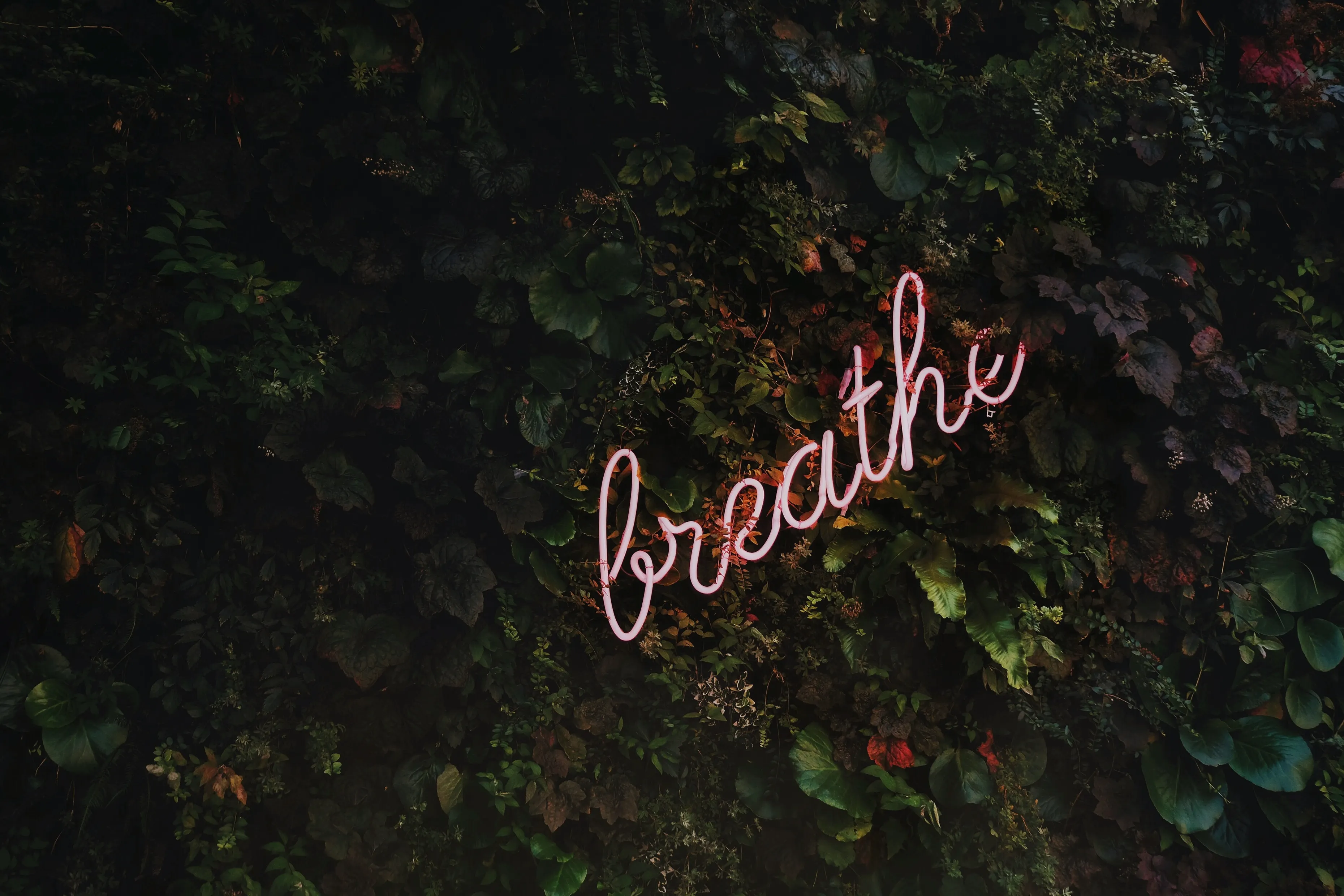
Free Relaxation techniques
Practicing relaxation techniques before bed
Creating a bedtime routine that includes relaxation techniques can signal to your body that it's time to unwind and prepare for sleep. Engage in calming activities such as reading a book, taking a warm bath, practicing gentle stretching or yoga, or listening to soothing music.
Relaxing music
Listening to music is a form of meditation, it is both healing and soothing, providing the right soundtrack is chosen. Click here for a song created by Marconi Union who worked with sound therapists and musicians to create the perfect arrangement of harmonies, rhythms and bass in order to slow the heart rate, and blood pressure and lower stress hormones such as cortisol. It has had over 98 million views since it was published on YouTube.
No to Digital Equipment
In today’s world of modern technology, we are spending more and more hours in front of a screen. It is all too tempting to use digital equipment before going to sleep. The issues are twofold, the content we are looking at on the screen is often not calming and will be detrimental to a good night's sleep. The blue light emitted by gadgets screen actually reduces the production of melatonin. This hormone controls your sleep/wake cycle otherwise known as the circadian rhythm. By reducing melatonin you are making it harder to fall and stay asleep.
Case Study: Gillian's Sleep-Enhancing Tai Chi Breath Technique
Meet Gillian, a dedicated practitioner of Tai Chi who has discovered the power of deep breathing for relaxation and rejuvenation. As part of her regular Tai Chi practice, Gillian cherishes the opportunity to breathe deeply, which not only oxygenates her body but also clears her mind. Little did she know that her beloved Tai Chi breath technique would become her secret weapon for a restful night's sleep.
Gillian developed her own specialized breathing technique that she lovingly refers to as the "Tai Chi breath before sleep." It's a simple yet powerful practice that helps her prepare her body and mind for a peaceful slumber. Here's how Gillian performs her sleep-enhancing Tai Chi breath:
1. Find a comfortable standing position
Gillian prefers to practice her Tai Chi breath technique standing up, allowing for a more open and unrestricted flow of air. She ensures she is in a space with good air quality, ideally near an open window or in a natural outdoor setting.
2. Visualize oxygenating the entire body
Gillian begins by visualizing her body as a whole entity, recognizing that every part, from the tips of her toes to the ends of her hair strands, deserves to receive oxygen and relaxation. This visualization helps her establish a mind-body connection, preparing her for the next steps.
3. Inhale deeply through the nose
Gillian takes a long, deep breath through her nose, allowing the air to fill her lungs completely. She envisions this breath as a vital life force, carrying the essential oxygen her body needs to function optimally.
4. Hold your breath while circulating the energy
With her lungs full of rejuvenating breath, Gillian holds the breath. During this time, she consciously imagines the oxygen being gently pushed and circulated throughout her entire body, reaching every nook and cranny. This mental exercise helps her focus her attention on the nourishing power of her breath, bringing a sense of vitality and calmness to every cell.
5. Exhale gradually through the mouth
After holding her breath, Gillian gradually releases it through her mouth. As the breath leaves her body, she envisions any tension, stress, or negative energy being expelled, allowing for a sense of deep relaxation and release.
6. Repeat the process three times
Gillian finds that repeating this breath cycle three times is the optimal number for her. It allows her to fully immerse herself in the practice and deepen the connection between her breath, body, and mind.
After completing her Tai Chi breath technique, Gillian curls up for a good night's sleep, feeling a profound sense of relaxation and tranquility. The intentional focus on deep breathing and the visualization of oxygenating her entire being sets the stage for a restful and rejuvenating slumber.
Gillian's case study illustrates the potential benefits of incorporating mindful breathing techniques, inspired by her Tai Chi practice, into a bedtime routine. By adopting this sleep-enhancing breath technique, individuals like Gillian can tap into the power of their breath to promote relaxation, reduce stress, and prepare their bodies for a night of deep and restorative sleep.

Sex
Engaging in sexual activity has been found to have potential benefits for sleep quality and overall sleep satisfaction. Here's why sex may contribute to a better night's sleep:
Release of hormones
Sexual activity triggers the release of various hormones, including oxytocin, dopamine, and endorphins. These hormones are known to promote feelings of relaxation, pleasure, and happiness. Oxytocin, often referred to as the "love hormone," can induce a sense of calmness and emotional bonding, which can facilitate the onset of sleep. The release of endorphins and dopamine during sexual activity can also help reduce stress and promote a sense of well-being, setting the stage for a more restful sleep.
Physical and mental relaxation
Engaging in sexual activity can help release tension in the body and promote physical and mental relaxation. Physical exertion and increased heart rate during sex can act as a natural form of exercise, helping to relieve built-up tension and stress. The resulting relaxation of the body can help prepare you for sleep by reducing muscle tension and promoting a sense of tranquility.
Sleep-promoting effects of intimacy
Sexual activity often involves a sense of intimacy, connection, and closeness with a partner. The emotional and physical intimacy experienced during sex can promote feelings of safety, security, and comfort, which are conducive to a more relaxed state of mind and body. This emotional connection and sense of intimacy can create a conducive environment for sleep, helping to reduce anxiety and promote a sense of peace before bedtime.
Enhanced sleep-inducing factors
Sexual activity can also enhance other sleep-inducing factors. For example, after orgasm, both men and women experience a period of relaxation and drowsiness, commonly known as the "afterglow." This post-sexual activity state can facilitate a smoother transition into sleep, as the body and mind are already in a more relaxed and contented state.
It's important to note that individual experiences may vary, and not everyone may find that sexual activity directly improves their sleep. Factors such as personal preferences, comfort, and the overall quality of the sexual experience can influence sleep-related benefits. While sex may potentially contribute to better sleep, it should be viewed as one of many factors that can support overall sleep hygiene.

Escape to the Countryside: Adventure for a Restful Night
When sleep seems elusive and tossing and turning becomes a nightly routine, why not embrace the allure of nature and embark on a camping adventure? Grabbing a tent and venturing into the countryside can offer a unique solution to your sleep woes while providing a host of other benefits.
Fresh air and natural peace
The countryside is a haven of fresh air and natural peace. Escaping the hustle and bustle of city life and immersing yourself in nature's embrace can have a profound effect on your well-being. Breathing in the crisp, clean air can help relax your mind and body, promoting a sense of calm conducive to sleep. The soothing sounds of rustling leaves, chirping birds, and distant flowing streams or the ocean, create a peaceful ambience that lulls you into a restful slumber.
Dark skies for better sleep
Light pollution from cities can disrupt our natural sleep patterns by interfering with the production of melatonin, the hormone that regulates sleep. In the countryside, away from the glare of artificial lights, you're treated to a dazzling display of stars twinkling in the night sky. The darkness of the countryside promotes melatonin production, helping you fall asleep faster and enjoy a deeper, more rejuvenating sleep.
Simplicity and disconnecting
Camping offers a chance to simplify your surroundings and disconnect from the constant demands of technology and daily routines. By stepping away from screens and modern distractions, you give your mind a break from the digital overload that can contribute to sleep disturbances. Instead, you can focus on the simplicity of setting up a campfire, cooking a meal, and enjoying the beauty of nature. This disconnection allows your mind to unwind and enter a state of relaxation, making it easier to drift off into dreamland.
Adventure and physical fatigue
Engaging in outdoor activities during the day, such as hiking, biking, or exploring nature trails, can help promote physical fatigue. The combination of fresh air, exercise, and exposure to natural sunlight contributes to a healthy sleep-wake cycle. As your body tires from the day's adventures, it naturally prepares for restorative sleep, making it easier to fall asleep and stay asleep throughout the night.
So, if counting sheep just doesn't cut it anymore, consider packing your tent, gathering some camping essentials, and venturing into the countryside for a sleep-inducing adventure. Nature's serene beauty, fresh air, and the allure of a starlit sky await, providing the perfect backdrop for a restful night's sleep and a rejuvenating escape from the ordinary. Happy camping and sweet dreams!

Sniff Lavender: Harnessing the Power of Herbs for Better Sleep
When it comes to achieving a restful night's sleep, the power of nature's remedies should never be underestimated. Among the many herbs known for their sleep-enhancing properties, lavender stands out as a popular and effective choice. With its calming aroma and relaxing properties, lavender has been a go-to herb for promoting sleep for centuries.
The Science Behind Lavender's Sleep Benefits
Scientific research has also shed light on the sleep-promoting properties of lavender. A British study presented at the European Sleep Research Society in 2008 examined the effects of lavender oil on the sleep quality of 12 female insomniacs in their 50s. The participants had lavender oil sprinkled on their bedclothes, while a placebo of almond oil with minimal scent was used as a comparison. The results were remarkable: the participants who had lavender-infused bedclothes reported an easier time falling asleep and perceived their sleep quality to be better overall.
Lead author Chris Alford, a scientist at the University of the West of England in Bristol, explained that lavender's impact on sleep is not merely anecdotal. The study's findings provided scientific evidence of lavender's sleep-enhancing benefits, further supporting its use as a natural remedy for insomnia and sleep disturbances.
Lavender in Your Bedtime Routine
There are several ways to harness the sleep-promoting benefits of lavender. One popular method is using herbal pillows filled with dried lavender flowers. Placing such a pillow near your head or under your pillow allows the gentle scent to permeate the air, creating a calming and sleep-inducing environment. Additionally, you can use essential oils, such as lavender oil, in a diffuser or by adding a few drops to a warm bath before bedtime. These methods help disperse the soothing aroma of lavender, promoting a sense of relaxation and preparing your mind and body for sleep.
It's important to note that lavender is generally considered safe and well-tolerated by most individuals. However, as with any herbal remedy, it's recommended to perform a patch test or consult with a healthcare professional, especially if you have any underlying medical conditions or sensitivities.
Embrace the Benefits of Herbal Remedies
Finding the right herbal remedy for sleep that works for the unique person that you are, may require some experimentation. If lavender under you pillow does not work consider finding herbal sleep tea remedies, of which there are many on the market. Keep a note of what you drink each night until you find the one that works for you.
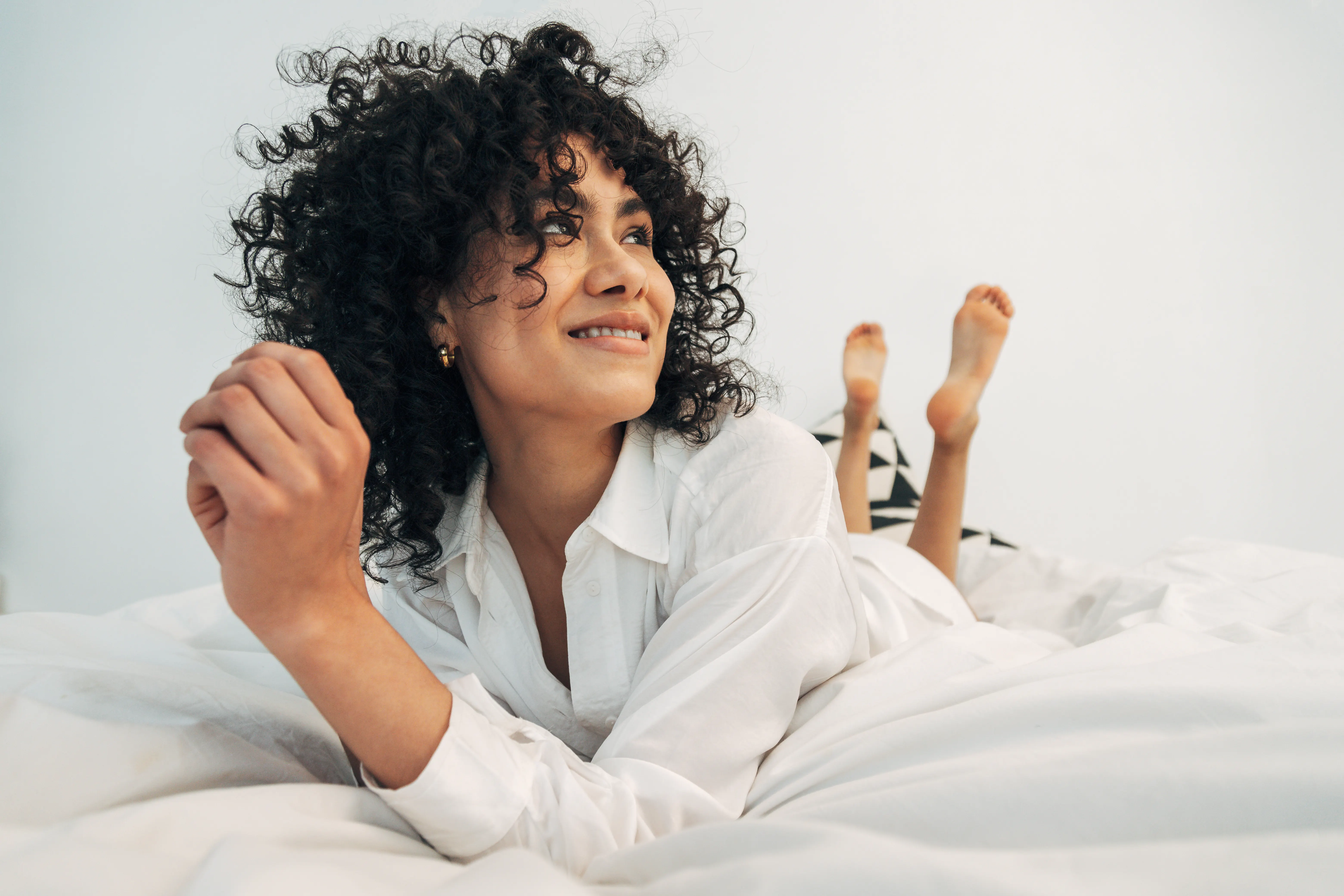
Touch Your San Yin Jiao: Unlocking the Power of Acupressure for Insommnia
In the realm of alternative therapies, acupressure has long been revered for its ability to promote relaxation, relieve tension, and restore balance in the body. Tap into the ancient wisdom of Traditional Chinese Medicine, among the many acupressure points, the San Yin Jiao stands out as a potent spot that can help improve your sleep.
Locating the San Yin Jiao Point
The San Yin Jiao point, also known as SP6, is located on the inside of your leg, at the top of your ankle bone. To find this acupressure point, simply move four finger widths up your leg from the ankle bone. Once you've reached the designated spot, you're ready to unlock its potential
Applying Acupressure for Better Sleep
To activate the San Yin Jiao point and experience its sleep-enhancing benefits, apply pressure using your fingertips or thumb. Gently press down on the point and hold it for about four to five seconds. You may feel a slight sensation or a subtle sense of relief as the energy in your body begins to shift.
The San Yin Jiao point is associated with calming and grounding effects. By stimulating this acupressure point, you encourage the flow of Qi (energy) throughout your body, helping to harmonize imbalances and promote a sense of tranquility. This can be particularly helpful for those experiencing insomnia, restlessness, or other sleep-related issues
Incorporating San Yin Jiao Touch into Your Bedtime Routine
To reap the benefits of acupressure on the San Yin Jiao point, consider incorporating it into your bedtime routine. Set aside a few moments before sleep to focus on this practice. Find a comfortable position, either sitting or lying down, and bring your attention to the inside of your leg, where the San Yin Jiao point resides.
As you hold the pressure, take slow, deep breaths, allowing yourself to relax and let go of any tension or stress. Visualize the gentle energy flowing through your body, promoting a state of calmness and preparing you for a peaceful night's sleep.
Acupressure is a safe and non-invasive practice. However, if you have any pre-existing medical conditions or concerns, it's always advisable to consult with a healthcare professional before incorporating acupressure into your routine.

The Importance of Keeping a Sleep Journal
When it comes to understanding and improving our sleep, knowledge is key. One powerful tool that can provide invaluable insights into our sleep patterns, habits, and overall well-being is keeping a sleep journal. By dedicating a few minutes each day to documenting your sleep experiences, you can uncover patterns, identify potential issues, and make informed decisions to enhance the quality of your sleep.
The Benefits of a Sleep Journal
A sleep journal serves as a personal diary dedicated to your sleep journey. It allows you to track and record various aspects of your sleep, providing a comprehensive overview of your sleep habits and patterns. Your sleep journal will:
- Identify Sleep Patterns
Regularly logging your sleep-related activities helps you identify patterns in your sleep-wake schedule. You can track the time you go to bed, the time you wake up, and the duration and quality of your sleep. Over time, this data can reveal patterns that may contribute to sleep difficulties or successful sleep routines.
- Uncover Triggers and Factors
A sleep journal enables you to record factors that may impact your sleep. This can include lifestyle choices, such as caffeine or alcohol consumption, exercise habits, stress levels, or emotional state. By tracking these variables, you can pinpoint potential triggers or contributors to sleep disturbances or restful sleep.
- Assess Sleep Quality
Documenting how you feel upon waking, including your energy levels and mood, can provide insights into the quality of your sleep. By correlating your sleep patterns with your daily well-being, you can gain a better understanding of the factors that influence the restorative nature of your sleep.
- Facilitate Communication with Healthcare Professionals
A sleep journal serves as a valuable resource when discussing sleep concerns with healthcare professionals. By providing a detailed account of your sleep habits, patterns, and challenges, you can enhance the accuracy and effectiveness of their assessments and recommendations.
Tips for an Effective Sleep Journal
A sleep journal is a personal tool that evolves with you. Be open to adjustments and refinements based on what you discover about your sleep patterns and needs. To maximize the benefits of your sleep journal, consider implementing these best practices.
- Consistency: Make a habit of recording your sleep experiences every day. Consistency is key to capturing accurate and meaningful data.
- Comprehensive Details: Include relevant information such as bedtime routine, bedroom environment, sleep aids used, and any significant events or factors that may impact your sleep.
- Objective and Subjective Data: Combine objective data, such as the time you went to bed and woke up, with subjective data, such as sleep quality ratings, feelings of fatigue, or specific observations about your sleep.
- Use a Format that Works for You: Choose a format that suits your preferences and lifestyle. It can be a physical journal, a digital note-taking app, or a dedicated sleep-tracking app on your smartphone or wearable device.
- Regular Review: Take the time to review your sleep journal periodically. Look for patterns, identify trends, and reflect on potential correlations between your sleep habits and sleep outcomes.
Keeping a sleep journal for at least two weeks empowers you to take an active role in understanding and optimizing your sleep. By documenting your sleep experiences, you gain valuable insights into your unique sleep patterns, habits, and factors that influence your sleep quality. Armed with this knowledge, you can have an informed discussion with a medical practitioner and implement strategies to enhance the quality of your sleep and overall well-being.

Create Your Connections and Community
In our pursu




